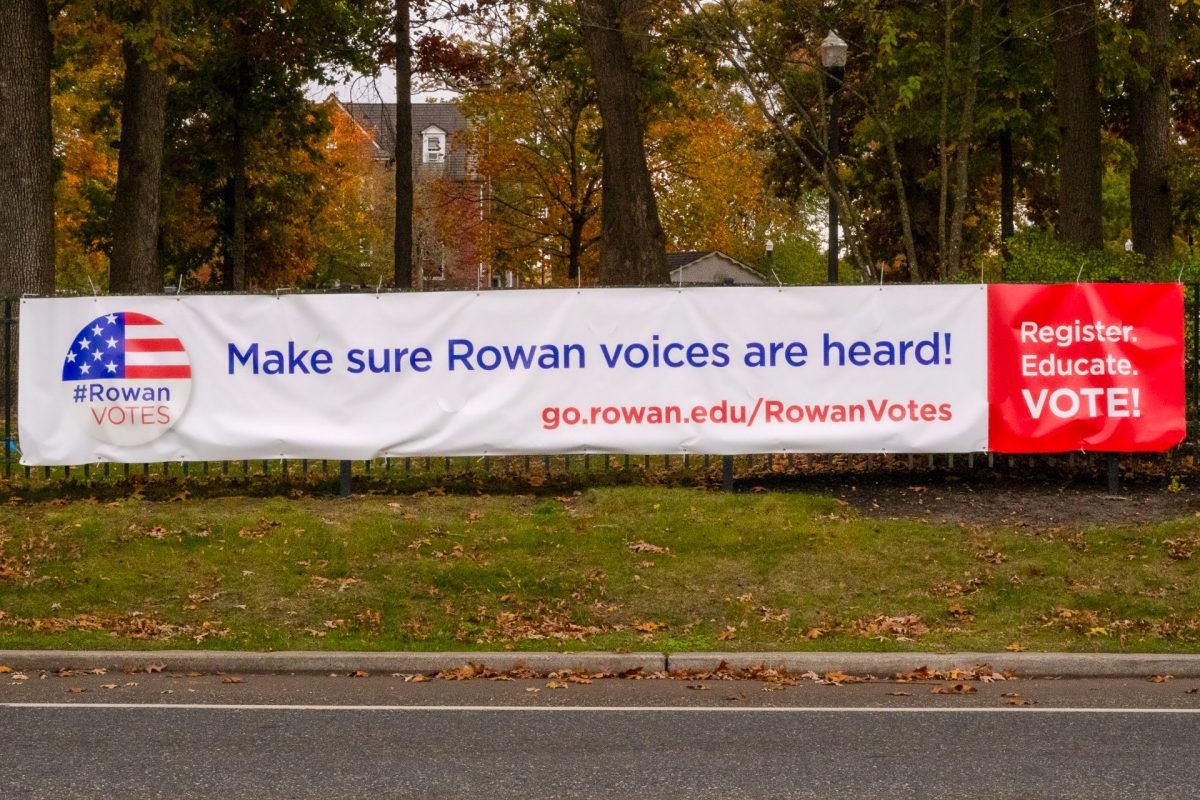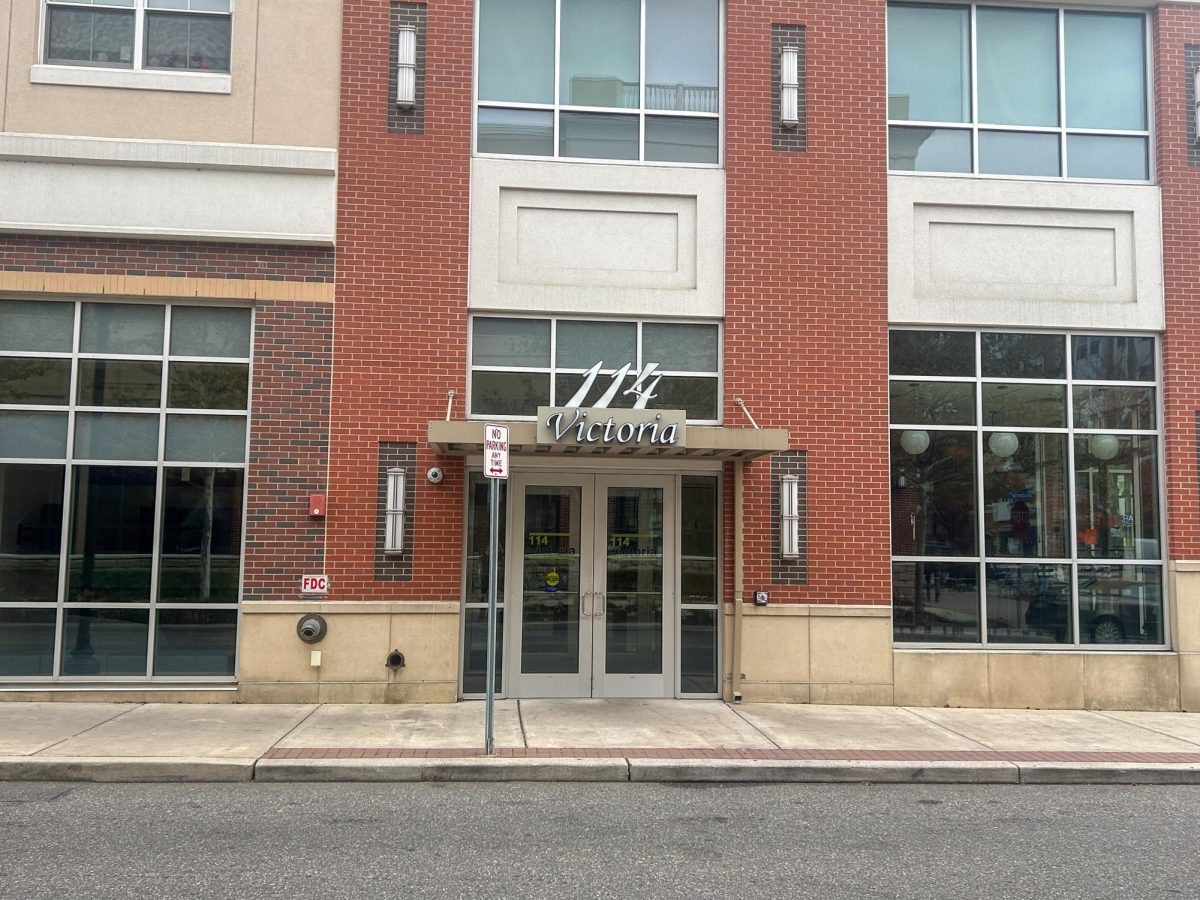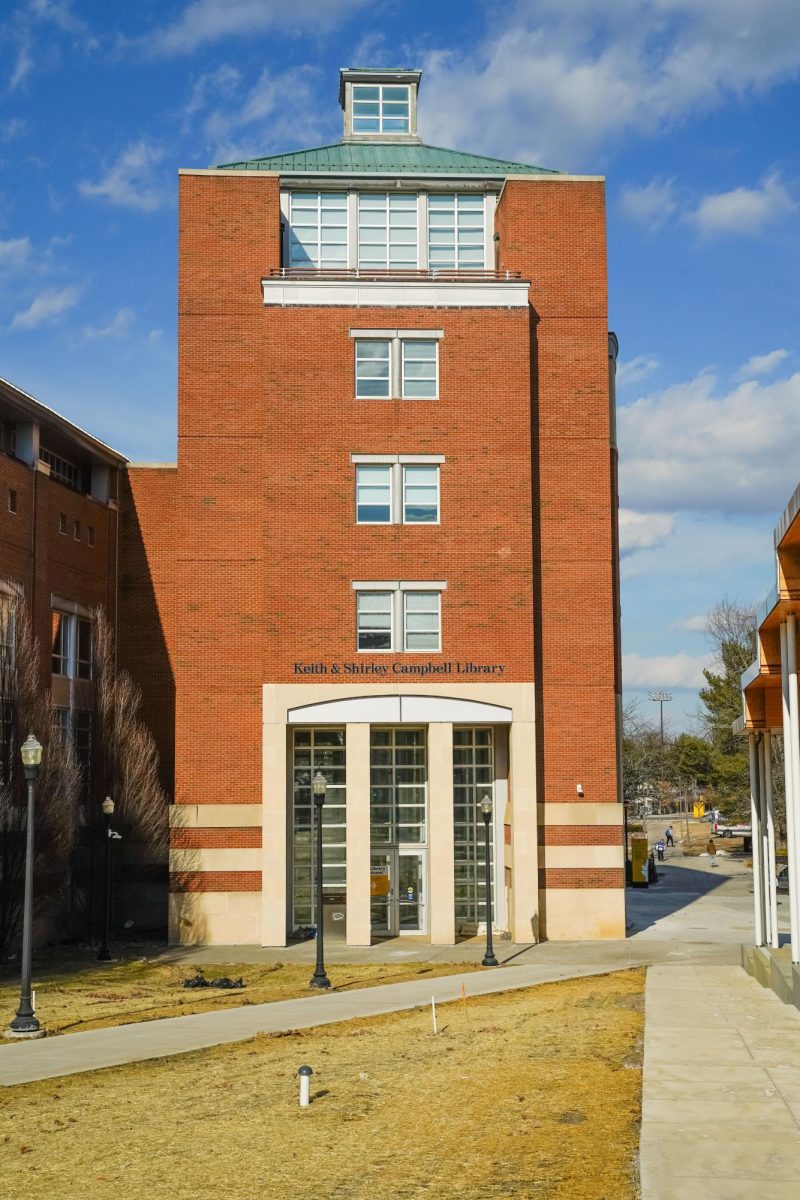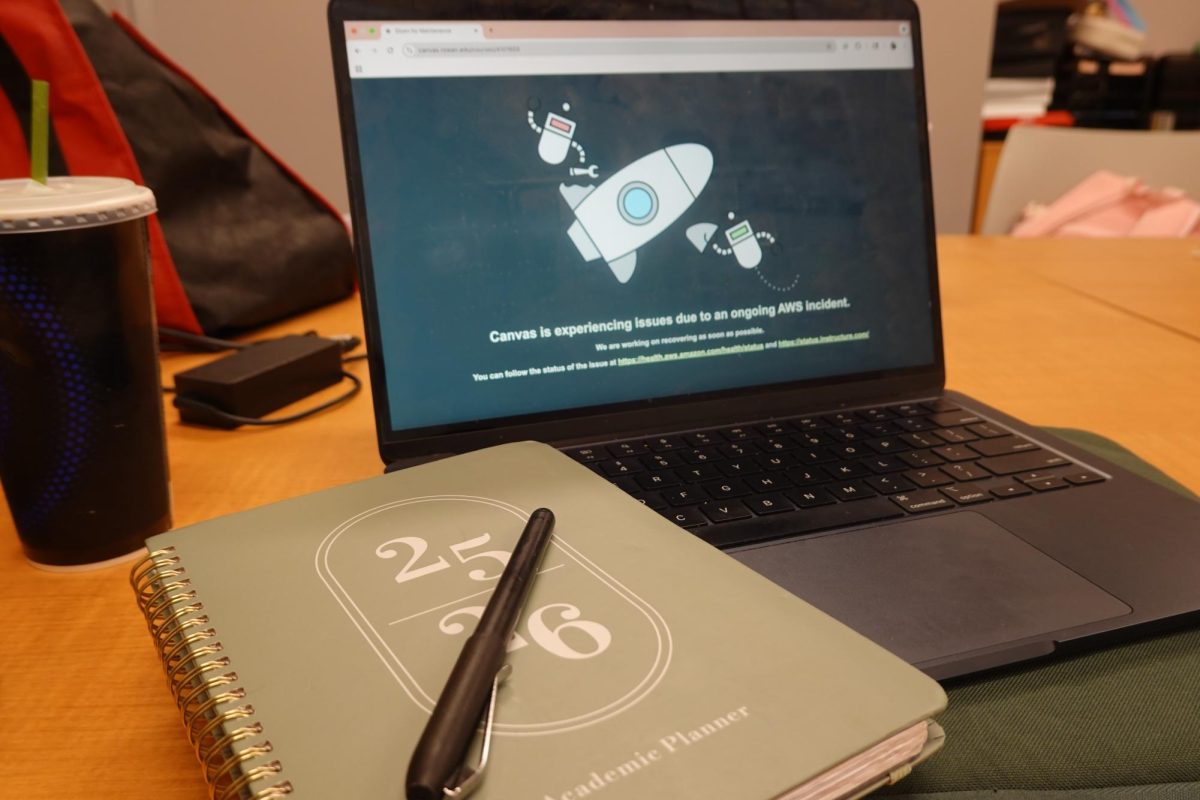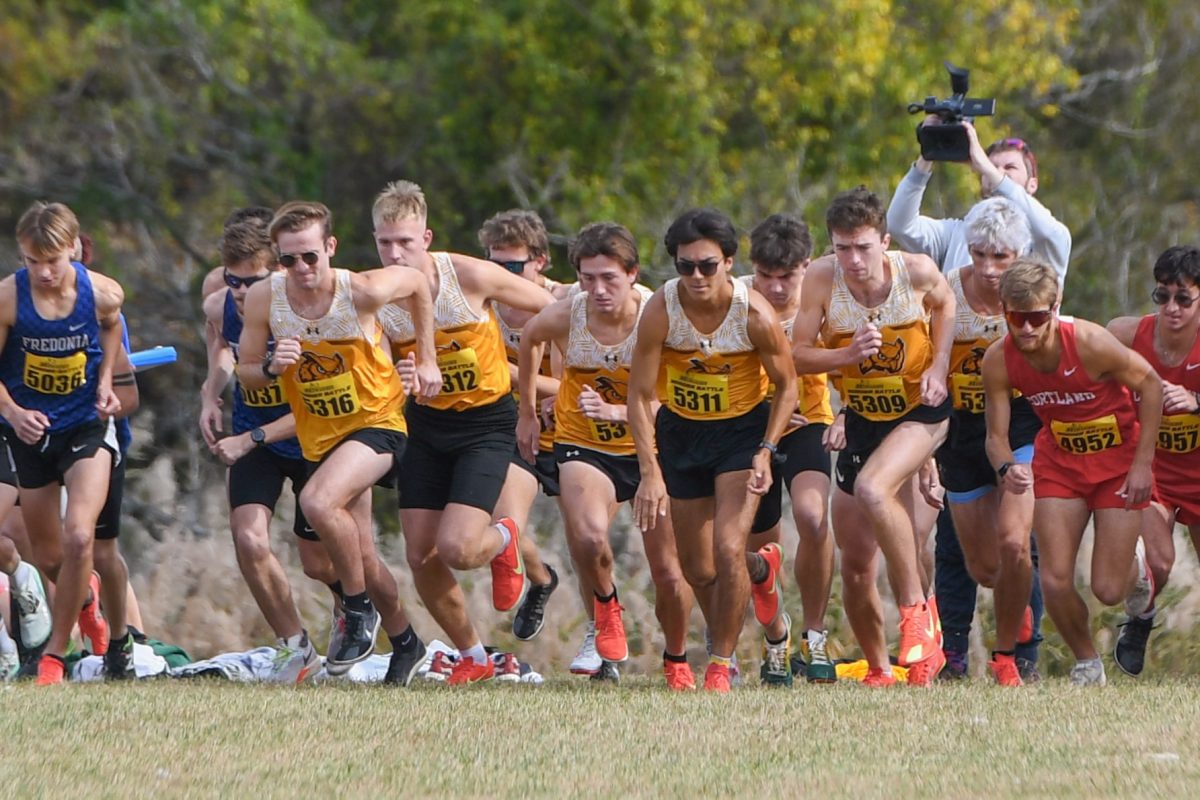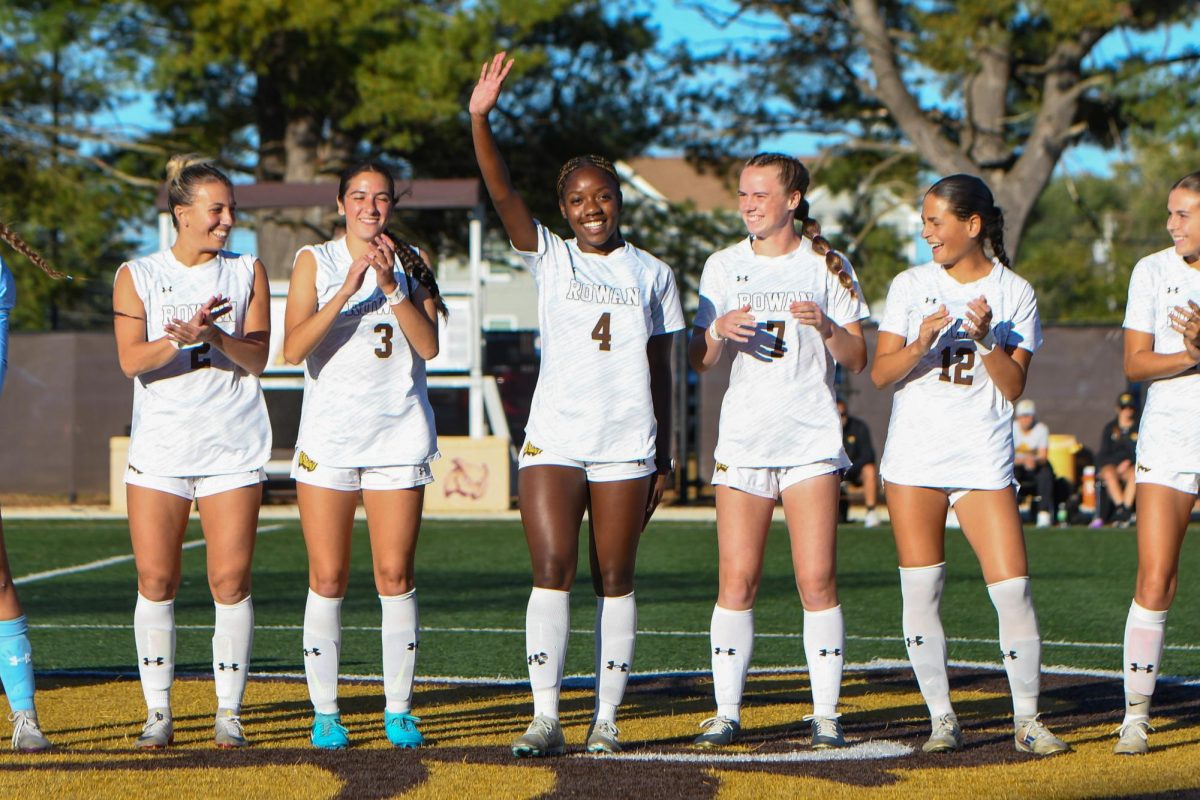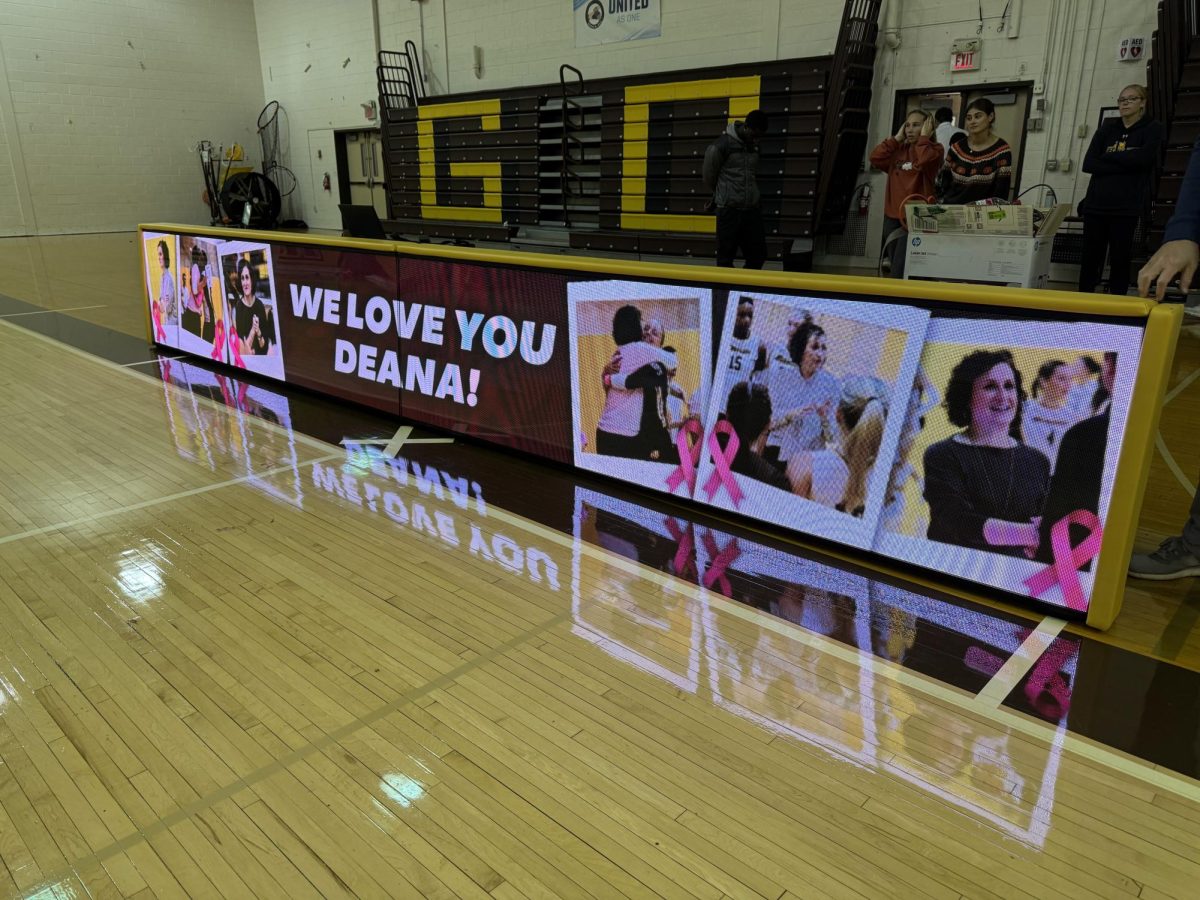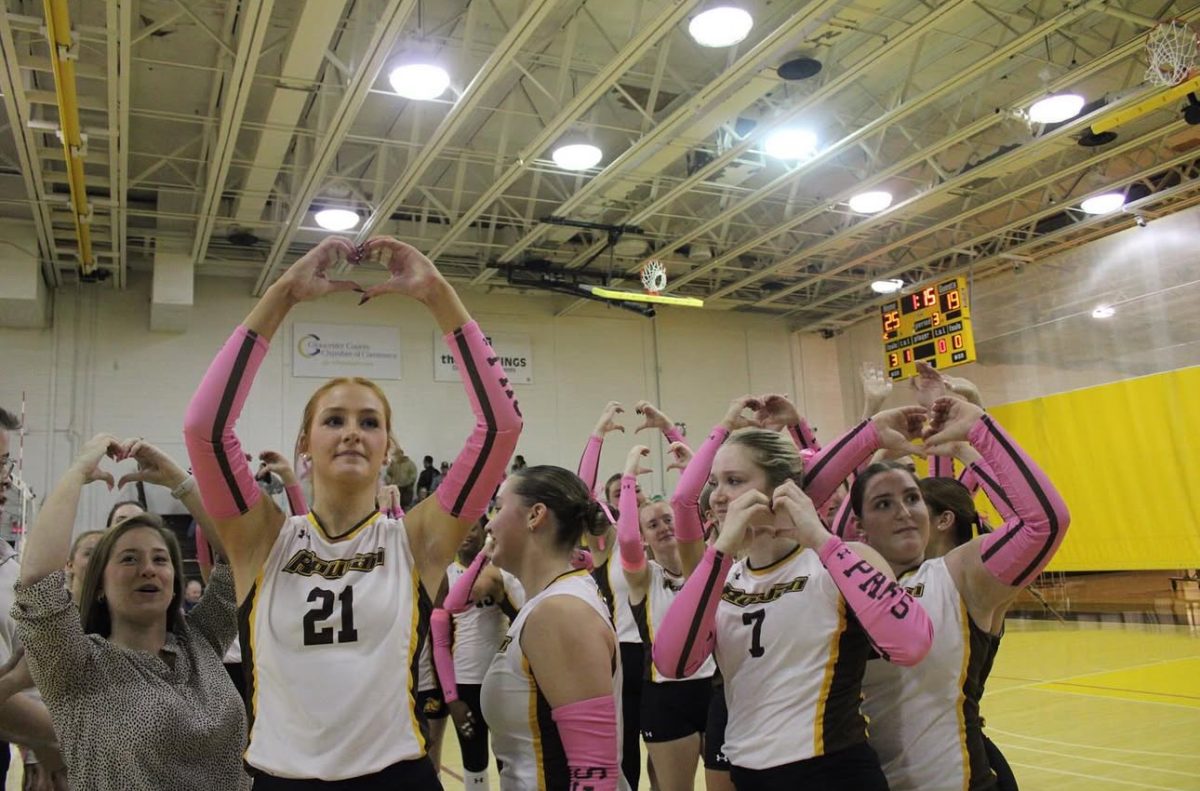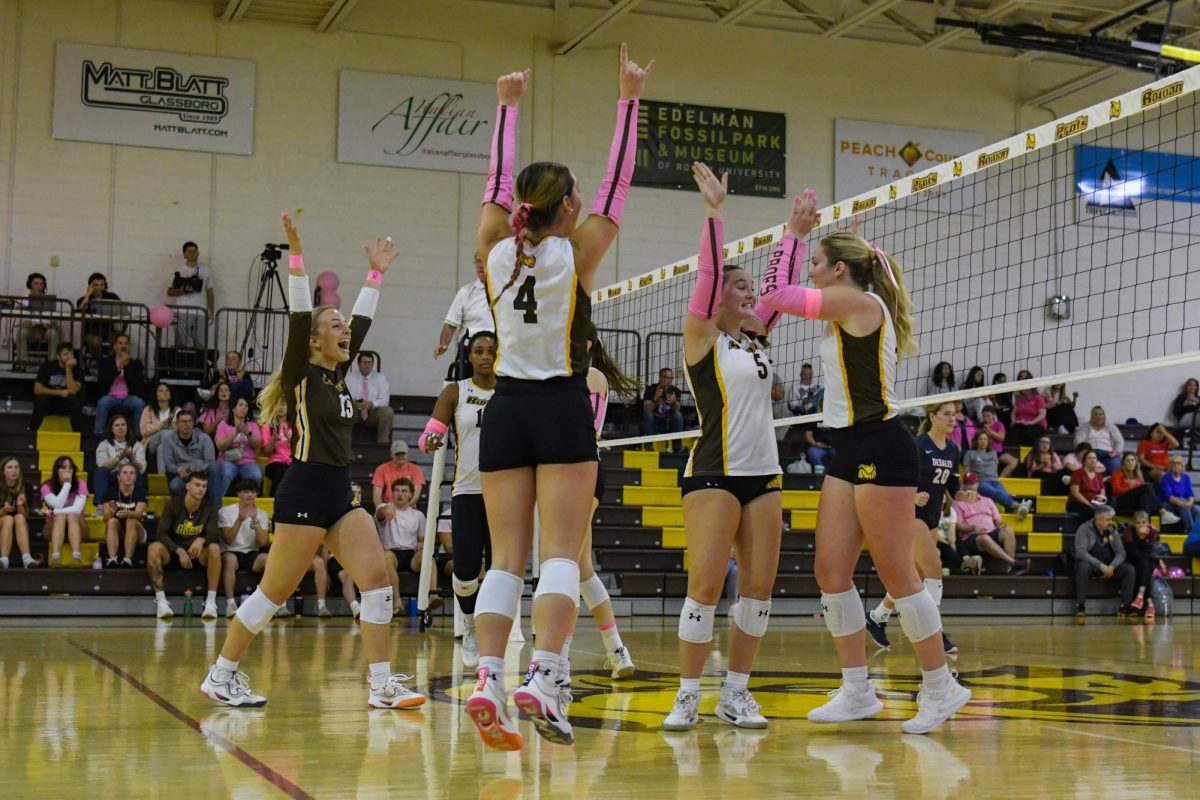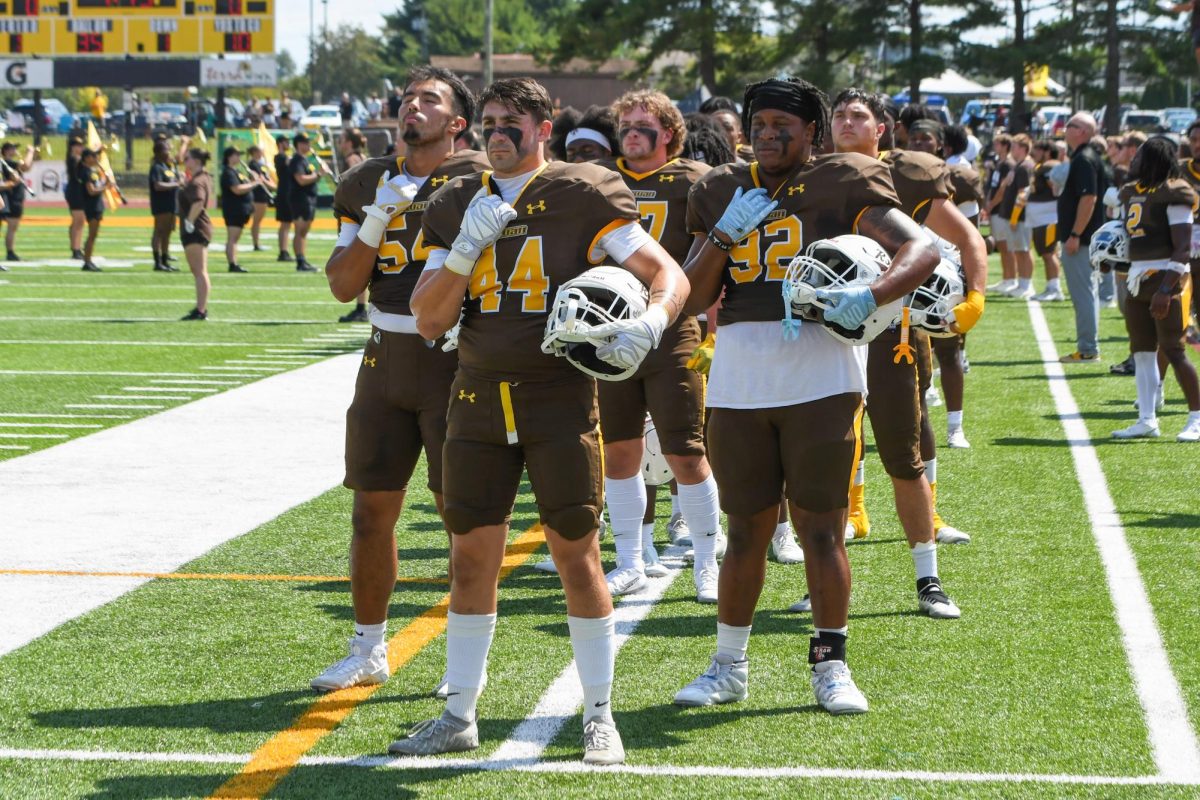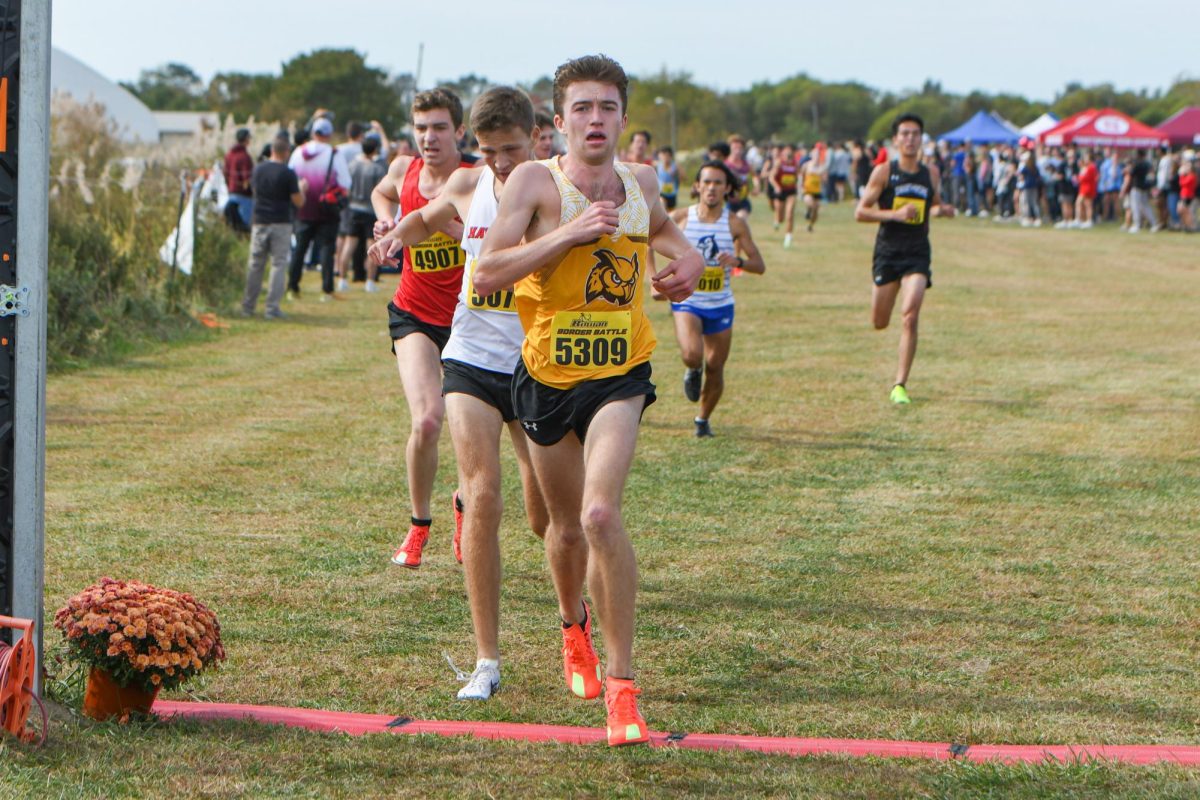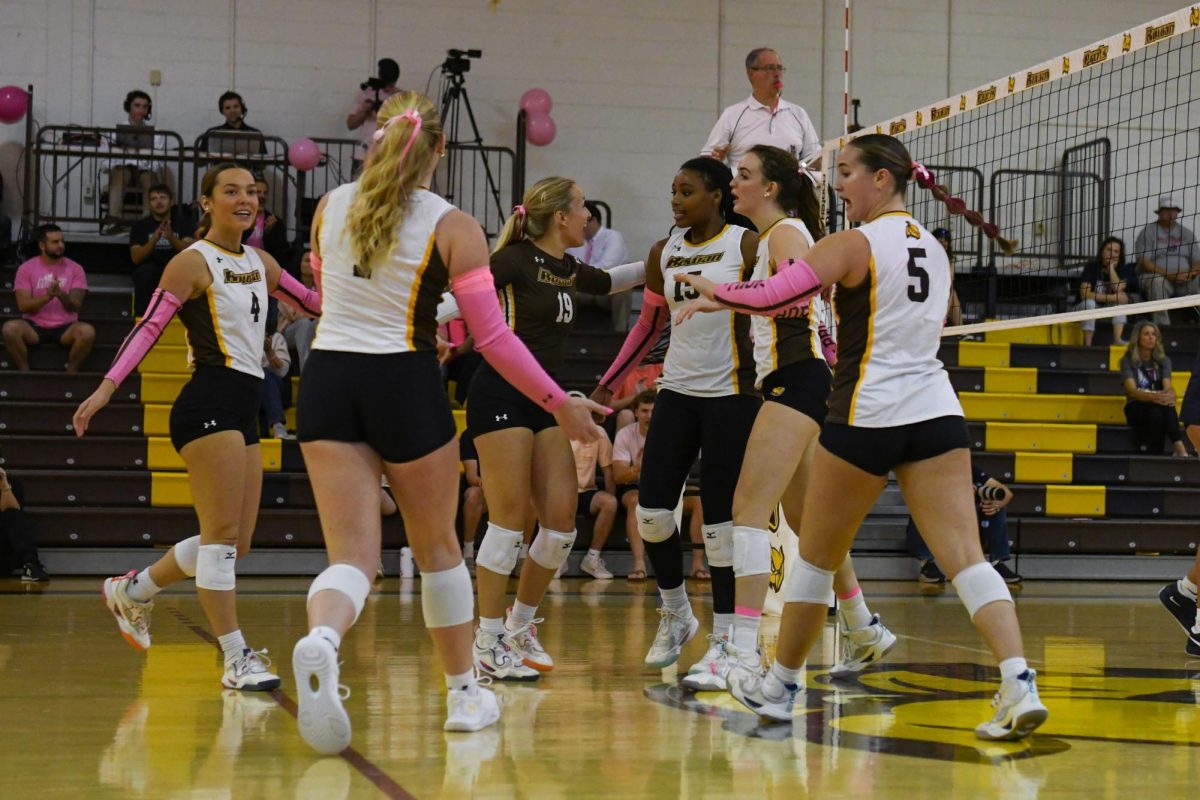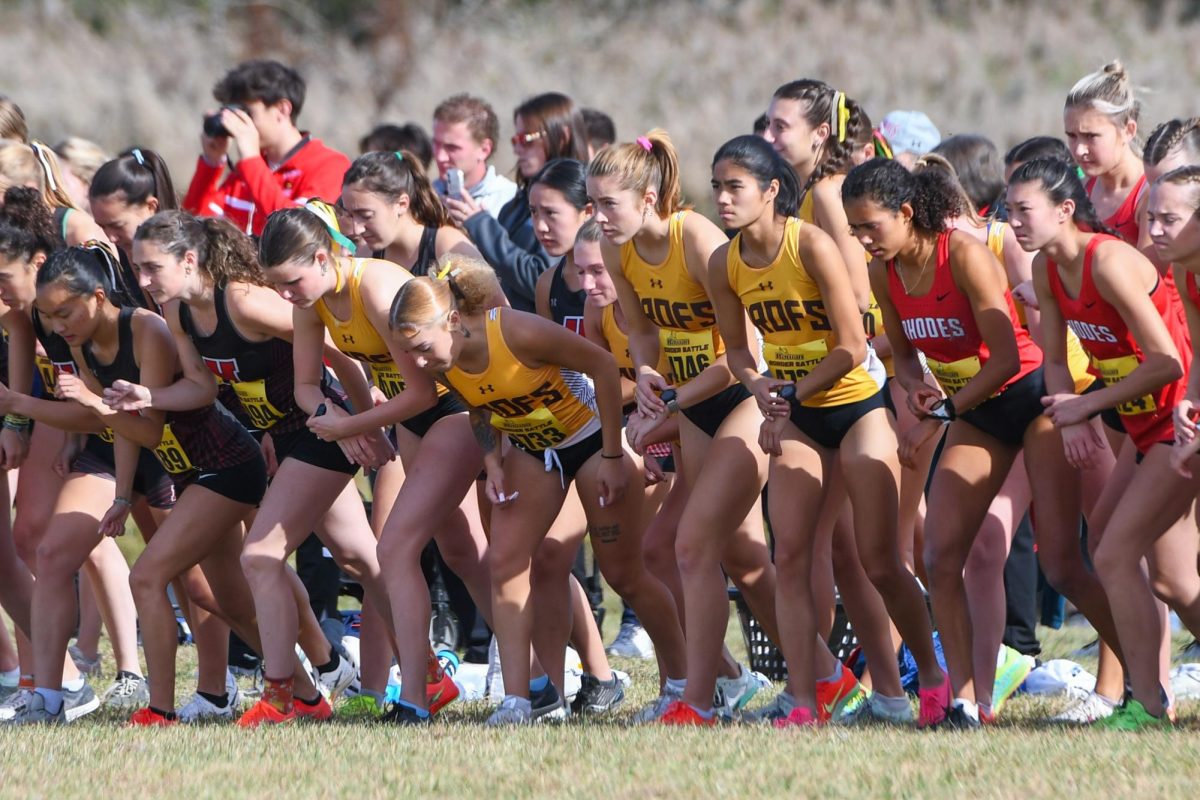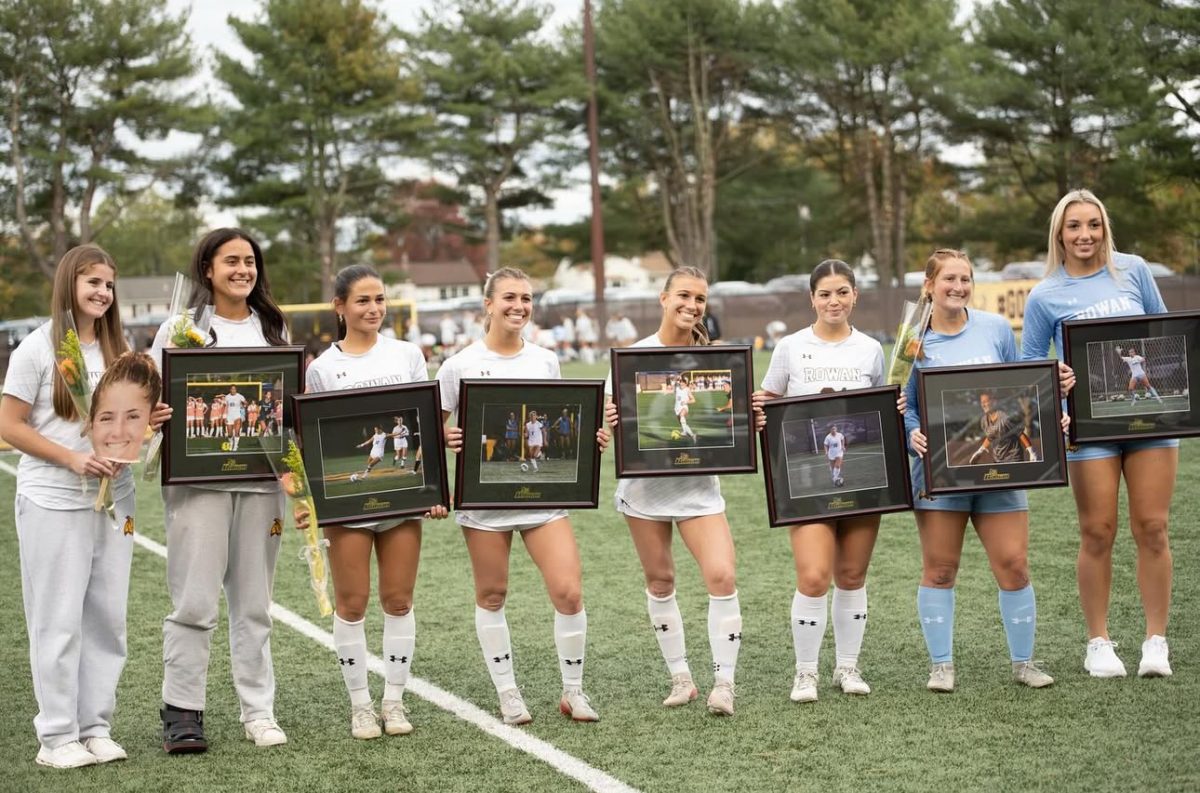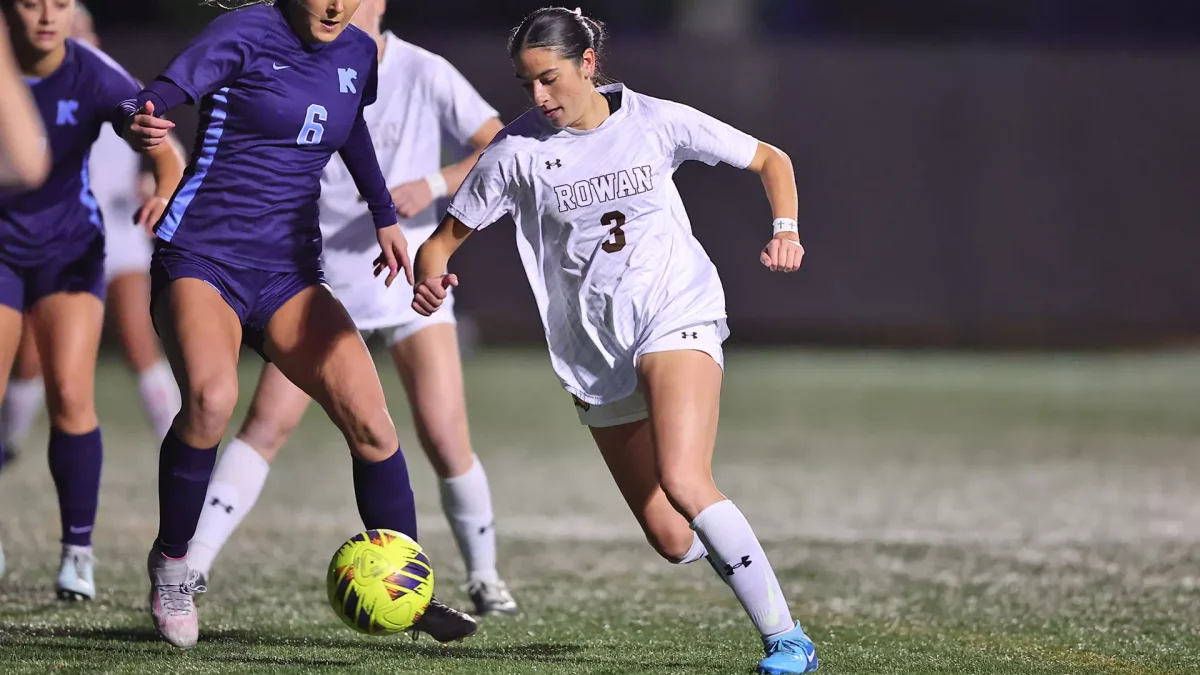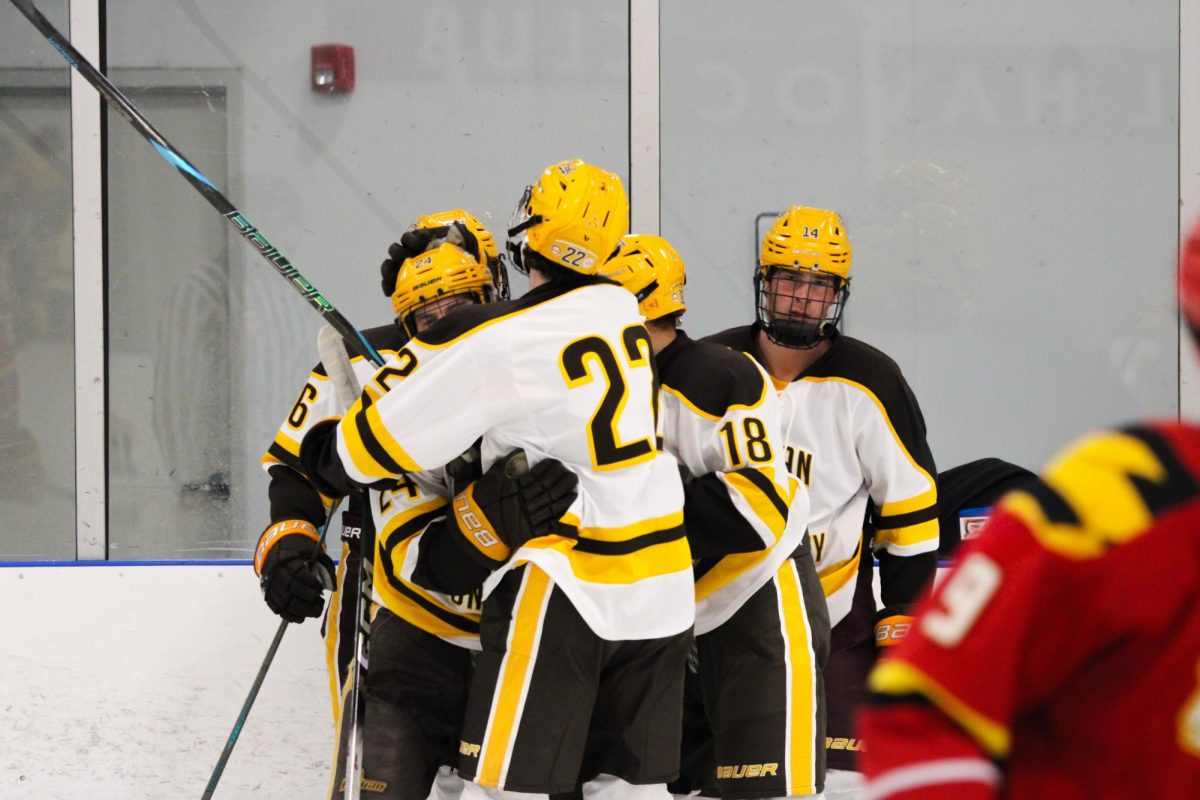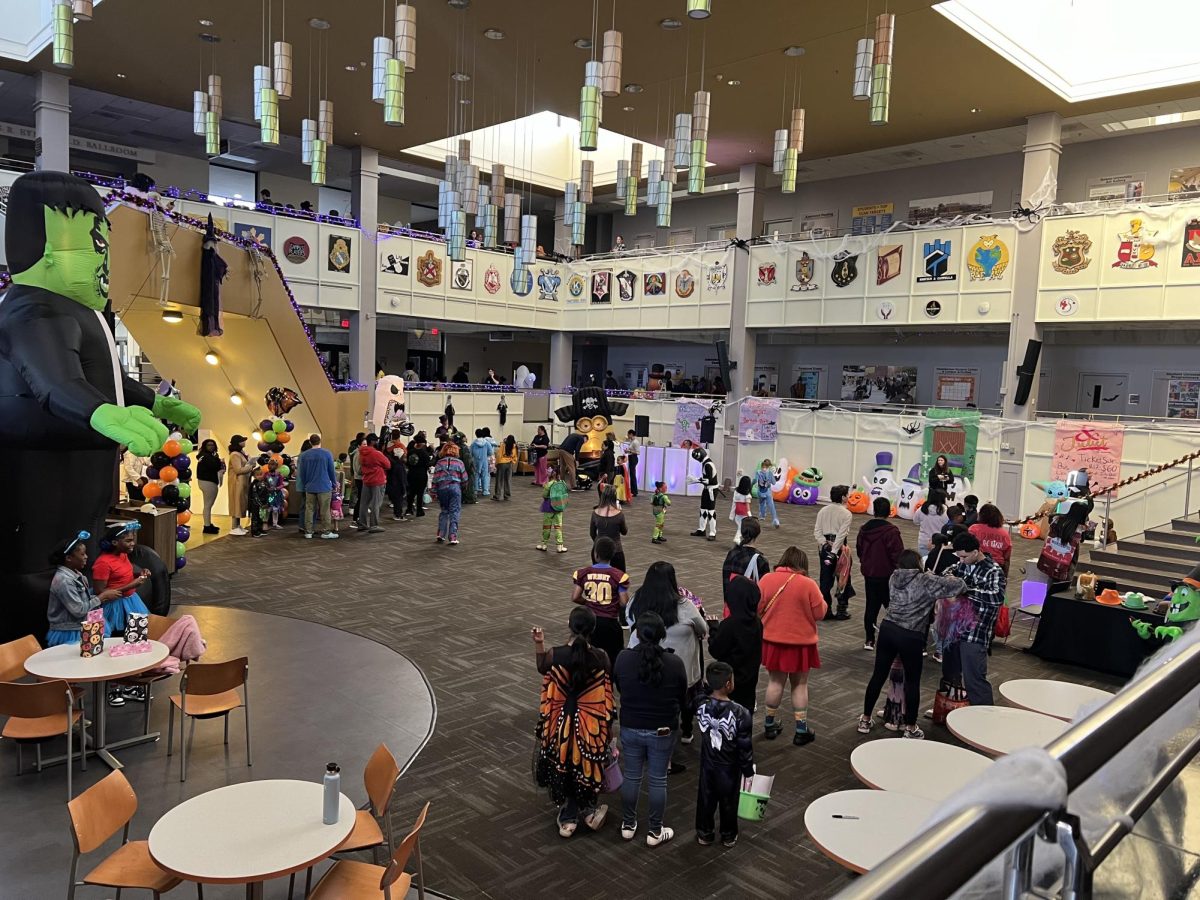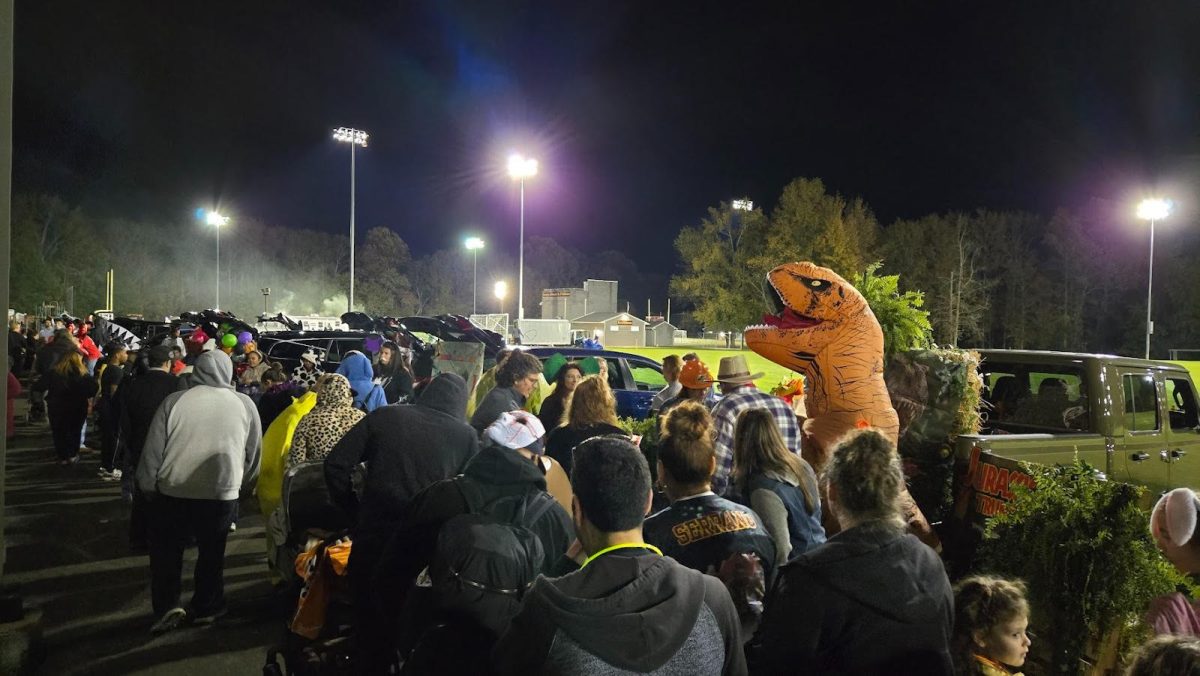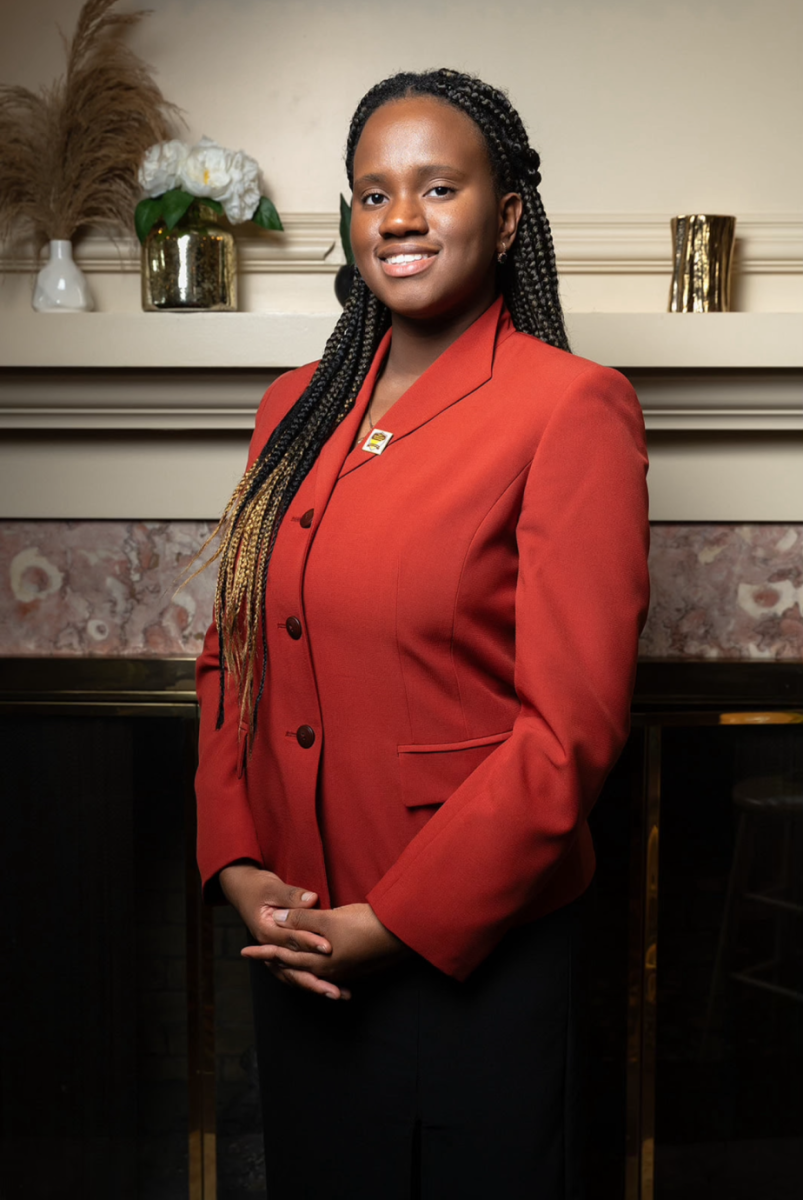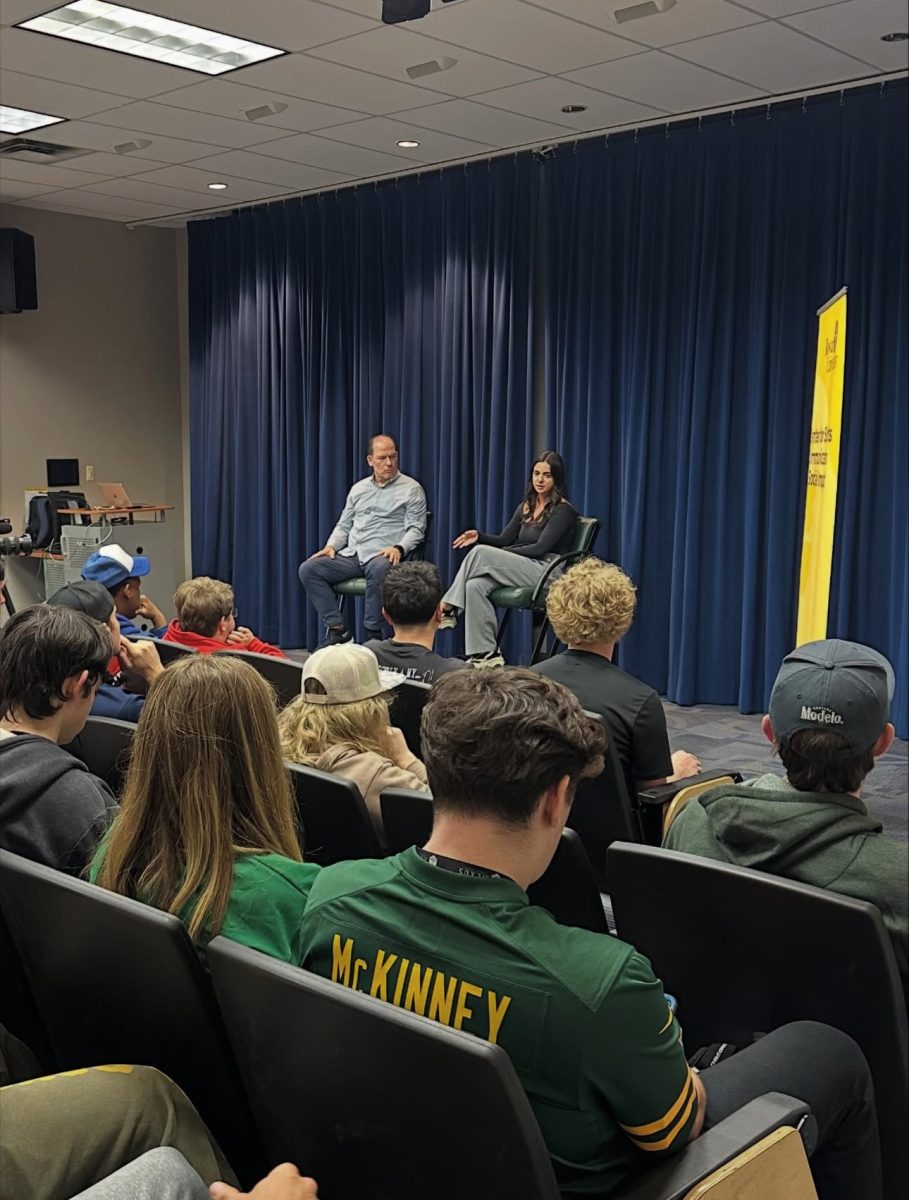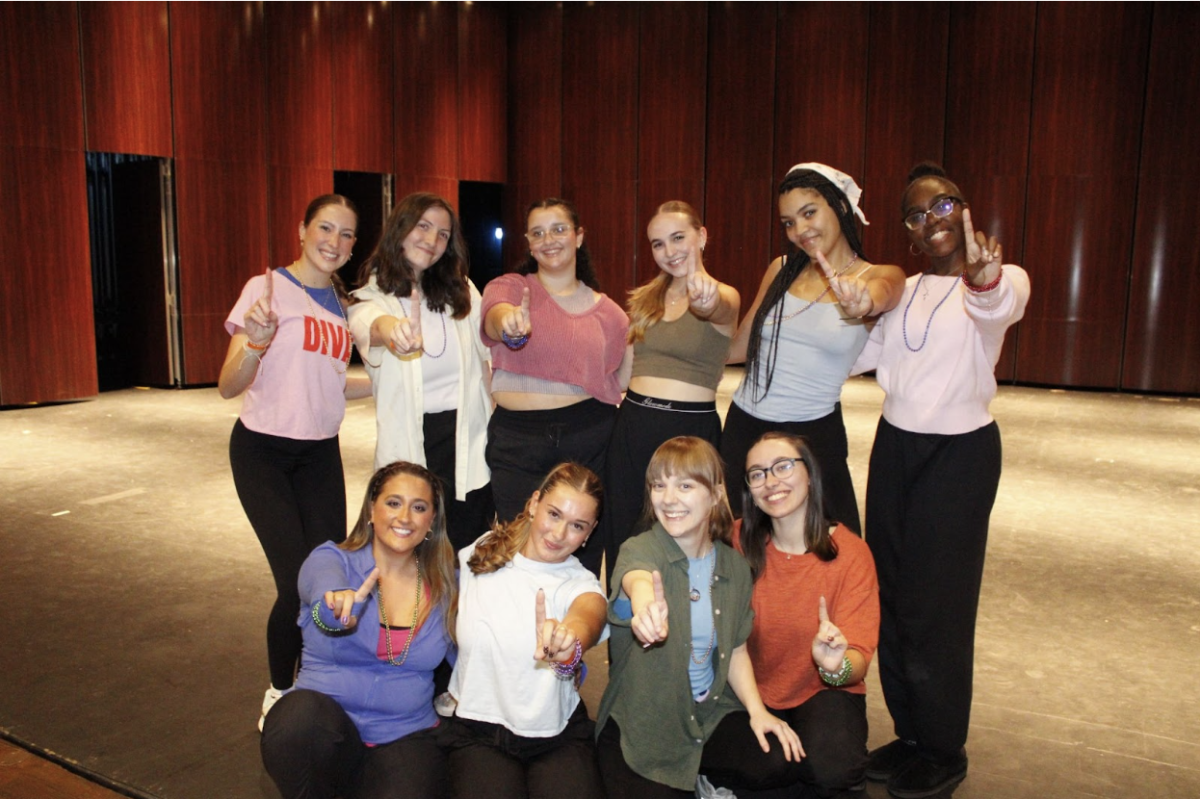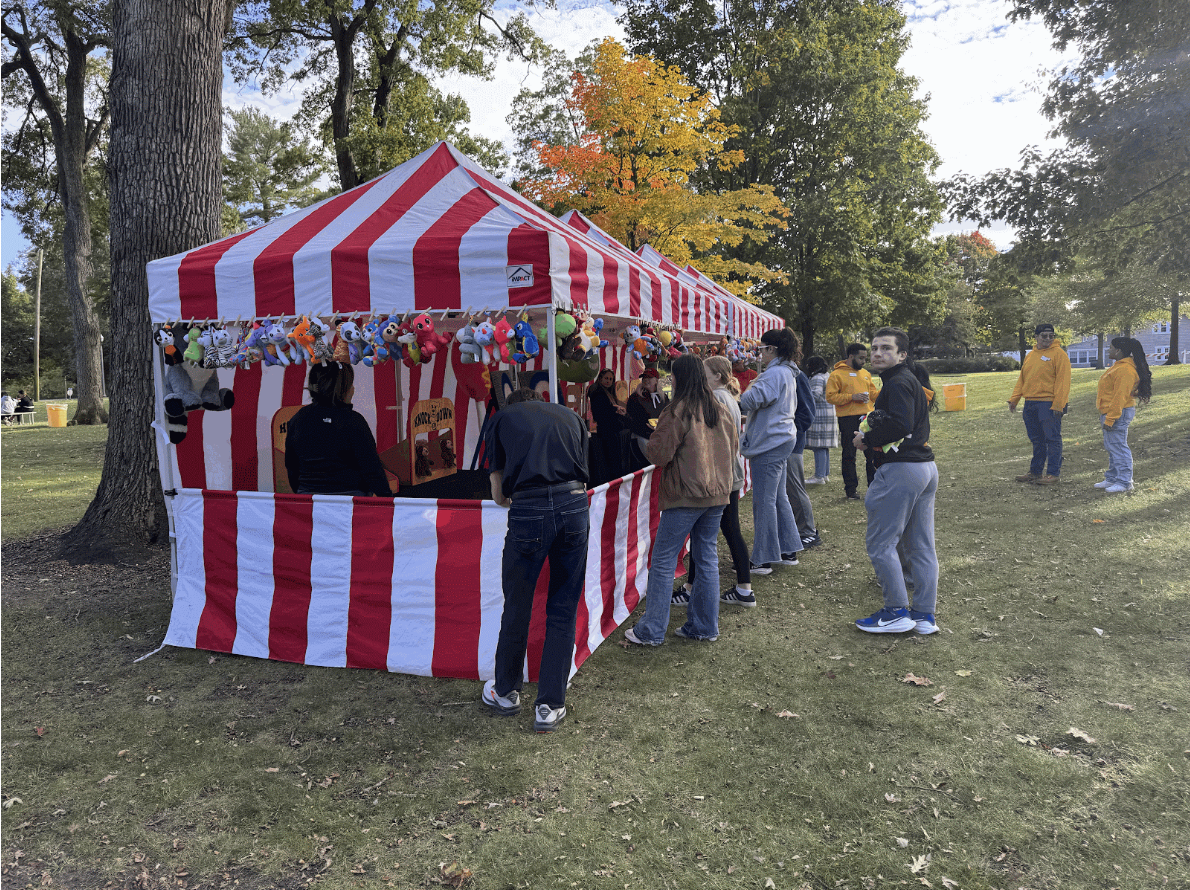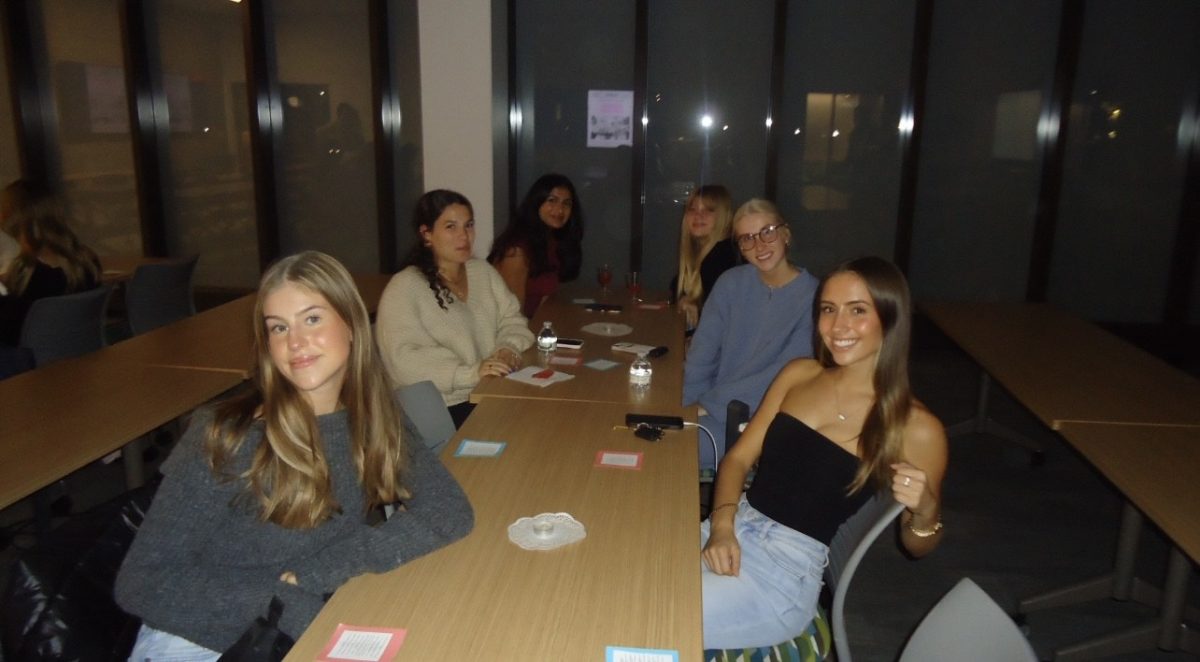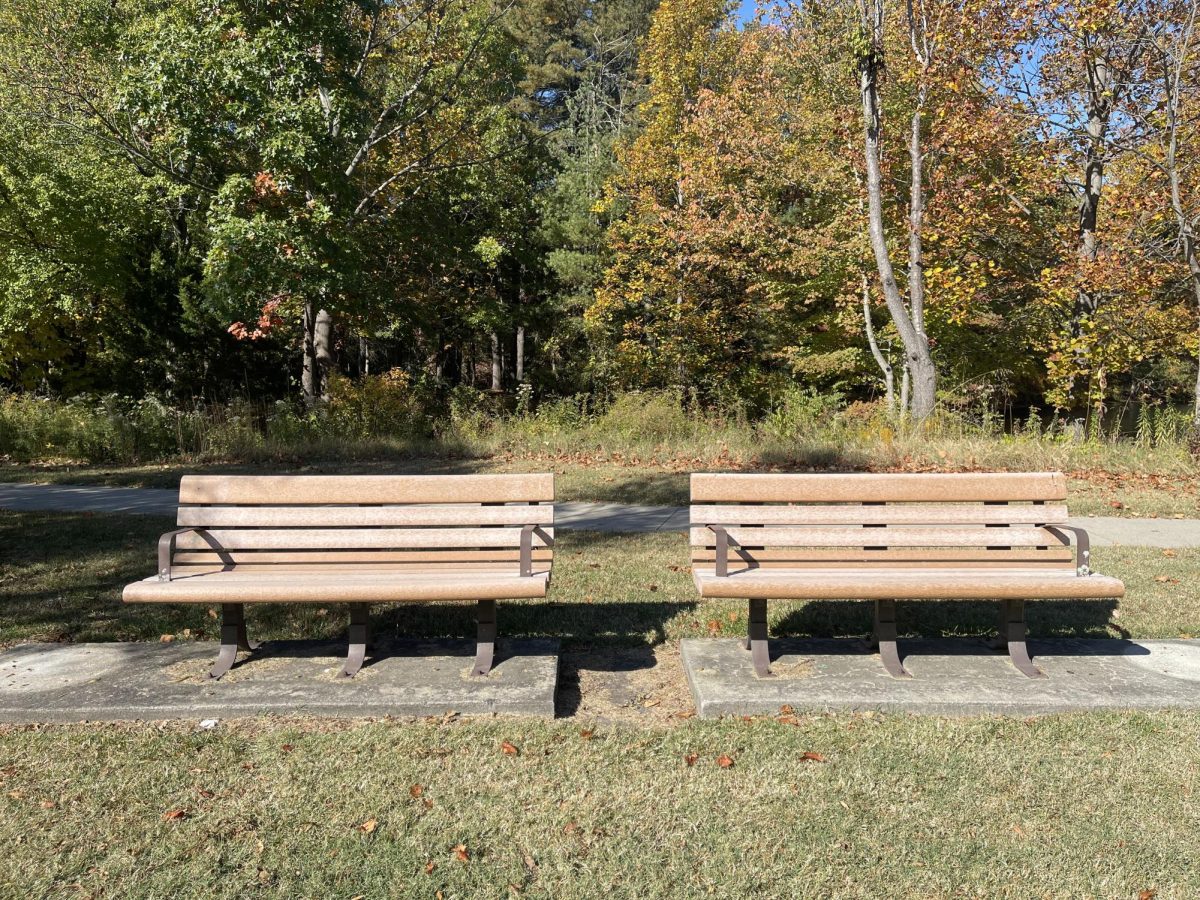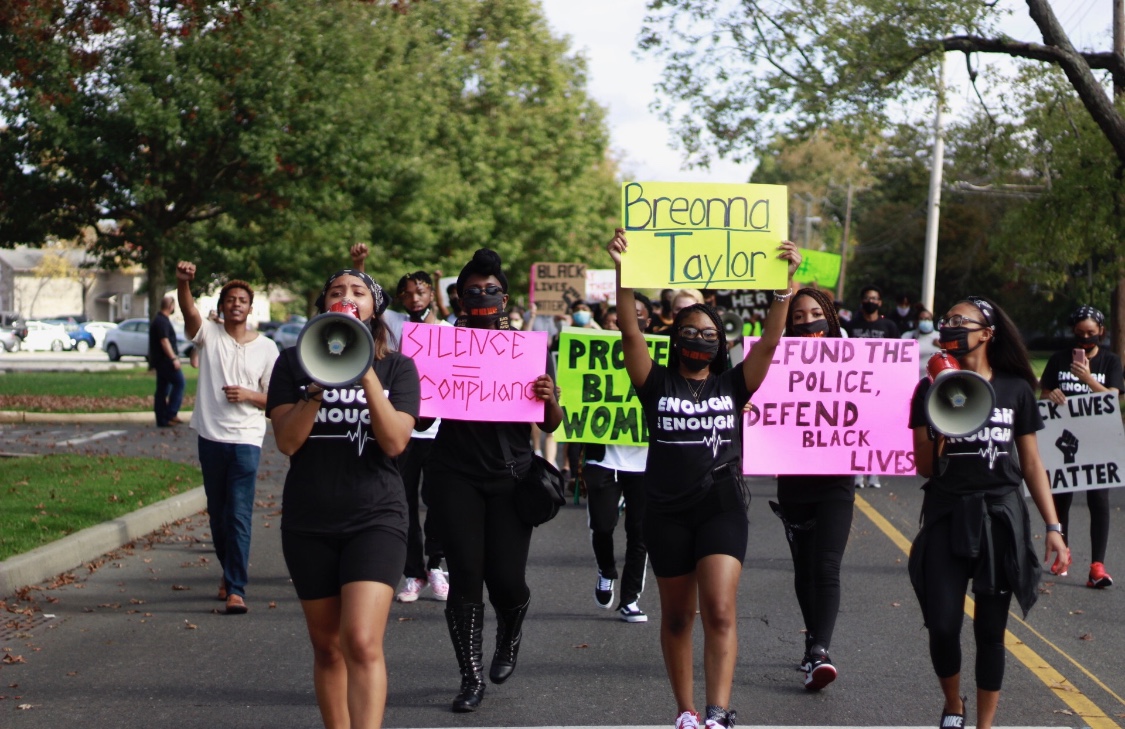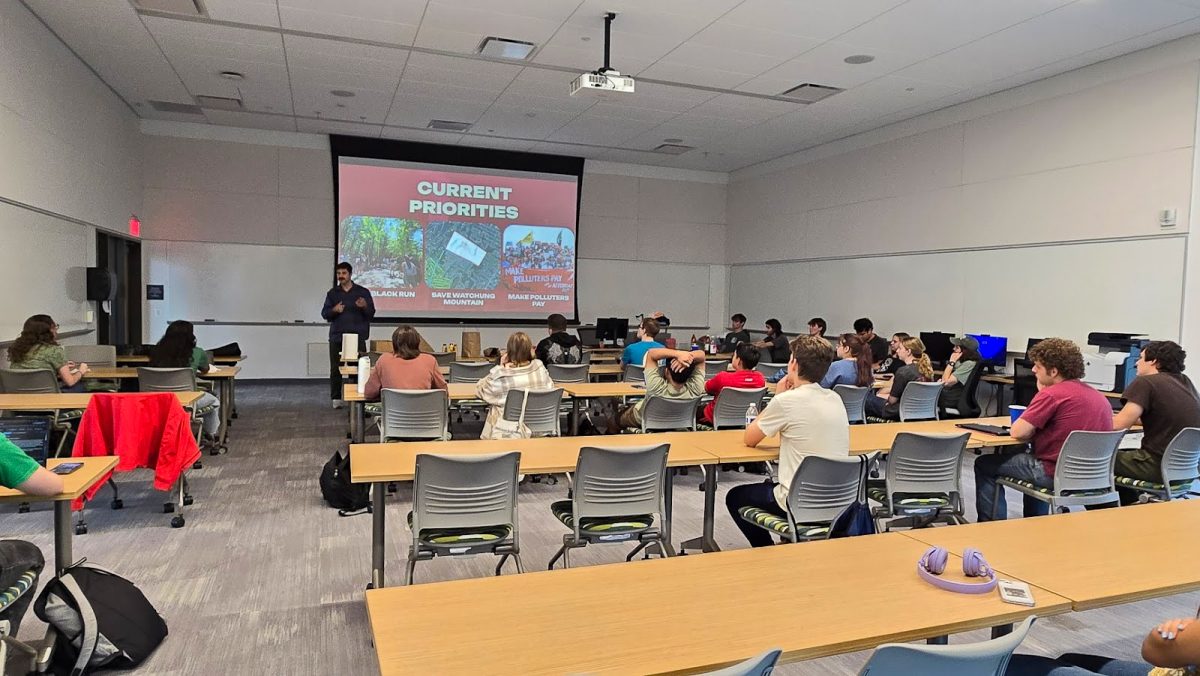Rowan’s Women of Color Alliance (WOCA) gathered in front of Glassboro Town Square’s fountain on Friday, Oct. 23, where they organized a “Say Her Name” march in honor of Breonna Taylor, a Black woman who was shot and killed by police in her own home during a botched raid.
The march, which proceeded to the university green in front of Bunce Hall, was accompanied by a police escort. Dean of Students Dr. Kevin Koett was also present to show support.

WOCA is a three-month-old petitioning student organization at Rowan and has held the first Black Lives Matter protest on campus since the fall semester began. Black Student Union (BSU) also held a protest earlier this year on Juneteenth to show support for the Black community.
Throughout the event, WOCA invited guest speakers from other organizations to share their perspectives on the Black Lives Matter movement’s purpose. This event was also made possible by several other minority-focused student organizations.
Kehinde Bolaji is a member of the Strong Tower Family, a Christian organization that serves children in dangerous circumstances. She shared her sentiment that women of color are often disregarded within broader social movements despite an enormous outcry for change.
“If people want to hop on the bandwagon and claim to be pro-black women or pro-black, they have to address the issues in their communities first,” Bolaji said. “On top of being expected to protest for Black men, who as a whole degrade us, we are expected to lead our own movement, too. Forgive the sarcasm in my voice, but the strong independent Black women trope has to go. We hurt and we ache.”

After the march, WOCA’s members sat down in front of Bunce Hall and discussed their reasons for organizing the march. It was also a chance to discuss some of the issues they know as women of color.
Ariana David, the Student Government Association (SGA) representative for WOCA, believes the Breonna Taylor movement is unique. In many ways, it highlights the struggles of women of color specifically.
“It was important for us to do it because we are centered around women. Yes, all the protests are for Black people, but the Black woman is the most disrespected human being in the world,” David said. “We wanted to voice our opinions and talk about what’s happening with as many people.”
Alayna Harrison, the vice president of WOCA, stated that women of color often feel isolated when they can’t find support within a predominantly white community.
“Something we think about every day on a college campus that is predominantly white, we feel as though we are overlooked. So it’s important to have to show our unity between all of the people of color on campus,” Harrison said. “I’m the only Black woman in one class. It makes me think I need to work twice as hard just to show I’m qualified to be in that space for people to take me seriously.”
According to catalyst.org, a global nonprofit that researches women’s occupational situations, “Black employees experience a heightened awareness of their difference in the workplace which manifests itself in disruption of sleep patterns, reduction of their sense of ‘psychological safety,’ and diminishment of their ability to contribute fully at work.”
Tamya Pittman, the treasurer of WOCA, believes her experience as a cheerleader in her freshman year of high school exemplifies the struggles her fellow members describe.
“We had to have our hair a certain way, and you know my hair can’t do everything everyone else’s can do. I asked my teacher if curly hair was OK, but she preferred me to have it straight. I didn’t see the microaggression at the time, but I didn’t want to straighten my hair. I could have done the same style, just a little different,” she said.

According to Pittman, she conformed to the squad but felt she had to sacrifice a part of her natural self, something not expected of her peers with straight or wavy hair.
“It hurt my confidence. I wanted to fit in with the rest of the girls, but that wasn’t me. At the time, it didn’t matter because it’s something I wanted to do,” Pittman said. “You know, maybe the teacher didn’t know she was rude. She probably just thought it was normal. I think making people more aware would minimize microaggressions.”
WOCA highlights that women of color face more significant challenges than just microaggressions. Most notable was the lack of resources in minority communities, which stands in the way of many from achieving their aspirations.
“It starts when we are young; we don’t have a lot of resources to get us to these places. I know many people of color that come to college, and they say they feel stupid because everyone around them knows a subject they ‘should have learned,’ even though we don’t have the resources to learn about college-level courses early,” Harrison said.
According to catalyst.org, women of color represented almost half of the low-wage workforce in 2016. In the same year, women of color accounted for nearly half (46%) of three low-wage, female-dominated occupations.
Osariemen Notemwanta, the secretary of WOCA, stated that she noticed a significant lack of people of color in science, technology, engineering, and math (STEM) courses.
“There are not a lot of Black people or people of color in a lot of the STEM programs I’ve been to; there’s usually one table that fits all of the Black people in the room,” Notemwanta said.

According to the National Science Foundation (NSF), African American women earn a higher share of bachelor’s degrees in psychology yet are severely lacking in computer science, engineering, and physical sciences, all of which remain under 4% of total bachelor’s degrees in 2016.
“It’s instilled at such a young age that we aren’t enough, along with the lack of resources. It makes you prone to admit to defeat when you are older. In my major, athletic training, we started with about 50 people of color, now there are only seven in our program,” said Eliya Bravo, the president of WOCA. “It sucks because you want to keep fighting and be the person who made it through. Still, there are so many obstacles that it’s hard to keep going through it.”

Bravo shared that her organization’s goal on campus is to create a dialogue between all people to identify — and ideally rectify — inequalities.
“A lot of clubs don’t focus towards women; they are more just general clubs for different cultures,” Bravo said. “Ours is about unity, and we have a brothers association (Men of Color Alliance) so that way people can fit into what they feel comfortable with.”
For comments/questions about this story, email [email protected] or tweet @TheWhitOnline.

